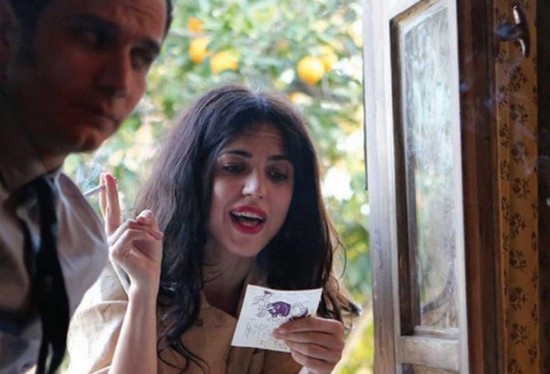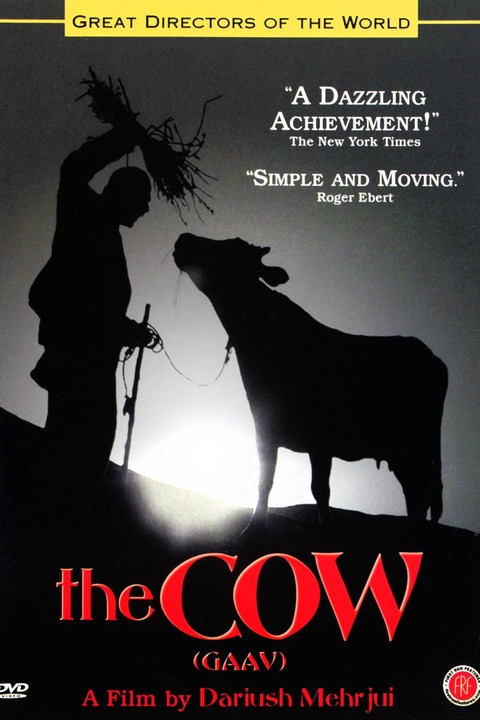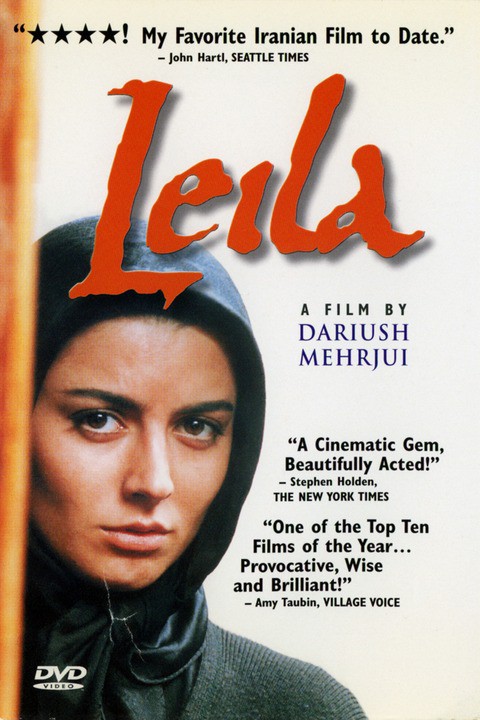Friday, December 25, 2015
Friday, December 18, 2015
Friday, December 11, 2015
20th IFFK 2015- FEFKA CONFERRED MASTER'S AWARD TO VETERAN FILM MAKER K.G.GEORGE

FEFKA ,the Film
Employees Federation of Kerala has felicitated K.G George ,the veteran
malayalam film Director during the closing ceremony of the International
Film Festival of Kerala (20th IFFK ) .Daruish Mehrji ,director from Iran and this
year's lifetime achievement award winner presented the Fefka Master's award,
consists a memento and a purse of Rs 10 lacs, to K.G.George .Minister for
Cinema Thiruvanchoor Radhakrishnan honoured him with
the customary 'Ponnaada'
.

The audience paid a
standing ovation to the veteran Director.Kamal,B.Unnikrishnan,Sibi
Malayil,G.S.Vijayan,Ranjith ,Shaji Karun and Rajeevnath were also present.FEFKA is
a union of film technicians in Kerala. Swapnaadanam (1976),Vyaamoham (1978) ,
Iniyaval Urangatte (1978) Kolangal (1981),Yavanika (1982), Lekhayude Maranam Oru Flashback (1983),Panchavadippaalam (1984),Adaaminte Variyellu (1984),Irakal (1985),Kadhaykku Pinnil (1987),Mattoraal (1988),Ee Kanni Koodi (1990),Oru Yaathrayude Anthyam (1988) are some
of George's notable films.
The 20th edition of the International Film Festival of India (20thiffk 2015) concluded this evening with the award presentation ceremony and screening of the film OTTAAL which won the Suwarna Chakoram (Golden Pheasant Crow ) and other three awards

Life time Achievment Award of the IFFK was presented to Dariush Mehrjui,Iranian Director who was instrumental for the new wave films in Iran .He is described as a pioneer film Director who opened the door of Iranian IFFK were presented by P.Sadasivam (Retired Justice) ,Governor of Kerala .Minister Thoruvanchiyoor Radhakrishnan presided over the function. V.S Achuthanandan made felicitation speech.Rani George,Secretary to Government ,Rajeevnath Festival Director,Shaji Karun Festival Adviser and Rajendran Nair Academy Secretary were also present.Following the closing ceremony and award presentation, the film Ottaal was screened.
Suwarna Chakoram (Golden Pheasant Crow ) for the
best Film bagged by OTTAAL(TheTrap) , a
film from India and directed by Jayaraj . The
Memento ,Certificate and an award price of 15 Lacs.
:

 FIPRESCI Award: Best International Film bagged by OTTAAL(TheTrap) , a film from India and directed by Jayaraj Award: Certificate and Memento.FIPRESCI
Award: Best Malayalam Film awarded to Ozhivudivasathe
Kali ( An off day game) , directed by Sanalkumar Sasidharan. Award Price:
Certificate & Memento.
FIPRESCI Award: Best International Film bagged by OTTAAL(TheTrap) , a film from India and directed by Jayaraj Award: Certificate and Memento.FIPRESCI
Award: Best Malayalam Film awarded to Ozhivudivasathe
Kali ( An off day game) , directed by Sanalkumar Sasidharan. Award Price:
Certificate & Memento.
NETPAC Award: Best Asian Film Award Price:
Certificate & Memento : Yona directed by Nir Bergman from Israel.
.

NETPAC Award: Best Malayalam Film OTTAAL(TheTrap) , a film from India and directed by Jayaraj: Award Price: Certificate& Memento.Rajatha
Chakoram for best film selected by Audience :The Audience Poll Award goes
to OTTAAL (TheTrap) , a film
from India and directed by Jayaraj Award: Certificate, Memento & INR
2 Lacs/‐ Altogether OTTAAL bagged four
awards in this festival itself..The film won National Award 2014 for Best Director. The story of this film is
an adaptation of Anton Chekhov’s eternal story 'Vanka'
.
Friday, December 4, 2015
20th IFFK- 20th edition of International Film Festival of Kerala (IFFK) marked the beginning with the mesmerizing performance of Ustad Zakir Hussain
 A poignant and mesmerizing rendering by Tabala maestro Ustad Zakir Hussain accompanied by Sabir Khan in Saragi marked the
beginning of the 20th edition of International Film Festival of Kerala (IFFK),
the prestigious film festival of Kerala. Foreign delegates ,media people and
special invitees attended the gathering. Chief Minister Oommen Chandy lit the
traditional lamp marking the opening of the week-long extravaganza in the
presence of dignitaries including foreign
delegates and Jury Chairman Julio Bressane. Addressing the gathering, Chandy said IFFK is the
second largest film festival of this kind in Asia in terms of the delegate
participation."The world has now become a village and we get an aroma of the culture, tradition and life of
people there through this festival and festival elsewhere” Ommen Chandy said.In
his key note address, Zakir Hussain said he was "overwhelmed and
delighted" to bethe part of IFFK."India
is a place of culture...a place that imbibes incredible tradition...a way of
life...in Kerala in particular," he said.Lauding the rich cultural
tradition of the state, he said, "Whether it is Thayambaka, Idakka, Chenda, Maddalam or Kathakali performances, it
is an incredibly rich cultural heritage this state represents." The
tabala genius also said he had the previlage of learning from many gurus of the
state.
A poignant and mesmerizing rendering by Tabala maestro Ustad Zakir Hussain accompanied by Sabir Khan in Saragi marked the
beginning of the 20th edition of International Film Festival of Kerala (IFFK),
the prestigious film festival of Kerala. Foreign delegates ,media people and
special invitees attended the gathering. Chief Minister Oommen Chandy lit the
traditional lamp marking the opening of the week-long extravaganza in the
presence of dignitaries including foreign
delegates and Jury Chairman Julio Bressane. Addressing the gathering, Chandy said IFFK is the
second largest film festival of this kind in Asia in terms of the delegate
participation."The world has now become a village and we get an aroma of the culture, tradition and life of
people there through this festival and festival elsewhere” Ommen Chandy said.In
his key note address, Zakir Hussain said he was "overwhelmed and
delighted" to bethe part of IFFK."India
is a place of culture...a place that imbibes incredible tradition...a way of
life...in Kerala in particular," he said.Lauding the rich cultural
tradition of the state, he said, "Whether it is Thayambaka, Idakka, Chenda, Maddalam or Kathakali performances, it
is an incredibly rich cultural heritage this state represents." The
tabala genius also said he had the previlage of learning from many gurus of the
state. Later, Hussian enthralled the audience with his brief but magical
performance. 'Wolf Totem' by Jean-Jacques Annuad, was screened as the opening
film . A total of 176 films from 70 countries will be screened at 13 venues
across the city at the festival, organised by state-run Kerala Chalachitra
Academy. Sideline events such as Open Forum, Meet the Director, In Conversation
and Master Class sessions as also the Aravindan Memorial Lecture, panel
discussions and seminars will be held as part of the festival.Over 12,000 are
expected to attend the gala this year which will be concluded on December 11.
Later, Hussian enthralled the audience with his brief but magical
performance. 'Wolf Totem' by Jean-Jacques Annuad, was screened as the opening
film . A total of 176 films from 70 countries will be screened at 13 venues
across the city at the festival, organised by state-run Kerala Chalachitra
Academy. Sideline events such as Open Forum, Meet the Director, In Conversation
and Master Class sessions as also the Aravindan Memorial Lecture, panel
discussions and seminars will be held as part of the festival.Over 12,000 are
expected to attend the gala this year which will be concluded on December 11.Thursday, December 3, 2015
20th IFFK-Chief Minister Omman Chandy will inaugurate today evening
 കേരളത്തിന്റെ ഇരുപതാമത് അന്തർദേശിയ ചലച്ചിത്രമേളയ്ക്ക് ഇന്ന് തിരിതെളിയും
കേരളത്തിന്റെ ഇരുപതാമത് അന്തർദേശിയ ചലച്ചിത്രമേളയ്ക്ക് ഇന്ന് തിരിതെളിയും
ചലച്ചിത്ര ആസ്വാദകരുടെ പ്രതീക്ഷക്കൊത്ത് വളർന്ന്, ഇരുപതിൽ എത്തി നിൽക്കുന്ന ,കേരളത്തിന്റെ രാജ്യാന്തര ചലച്ചിത്രമേളയ്ക്ക് ഇന്ന് തിരിതെളിയും.അറുപതിലധികം രാജ്യങ്ങളില് നിന്നുള്ള 178 സിനിമകളാണ് ഇത്തവണ മേളയിൽ ഉണ്ടാവുക .മത്സര വിഭാഗത്തില് 14 ചിത്രങ്ങളും ലോകസിനിമാ വിഭാഗത്തില് 90 സിനിമകളുമാണ് പ്രദര്ശിപ്പിക്കുന്നത്. ലിത്വാനിയയില് നിന്നും മ്യാന്മറില് നിന്നുമുള്ള സിനിമകള് ഇതാദ്യമായി ഈ ച ലച്ചിത്രോത്സവത്തിനെത്തുന്നു എന്ന പ്രത്യേകതയുമു ണ്ട്.ഓസ്കര് അവാര്ഡിനായി നിര്ദേശിക്കപ്പെട്ട 19 ചിത്രങ്ങള് മേളയില് പ്രദര്ശിപ്പിക്കും. അഞ്ചു ചിത്രങ്ങളുടെ ലോക പ്രീമിയര്, രണ്ട് ചിത്രങ്ങളുടെ ഏഷ്യന് പ്രീമിയര്, 53 ചിത്രങ്ങളുടെ ഇന്ത്യന് പ്രീമിയര് എന്നിവ ഈവര്ഷത്തെ മേളയുടെ പ്രത്യേകതയാണ്. മേളയുടെ 20വര്ഷത്തെ ചരിത്രത്തില് ആദ്യമായാണ് ഇത്രയധികം ആദ്യപ്രദര്ശനങ്ങള് നടത്തുന്നത്. ഫസ്റ്റ് ലുക്ക് വിഭാഗത്തില് ഏഴും സ്ത്രീ ശക്തി വിഭാഗത്തില് ഏഴും ചിത്രങ്ങളുണ്ട്. ത്രീഡി വിഭാഗത്തില് ആറും സമകാലീന മാസ്റ്റര് വിഭാഗത്തില് ഫ്രഞ്ച് സംവിധായകനായ ടോണി ഗാറ്റ്ലിഫിന്റെ അഞ്ചു ചിത്രങ്ങളും റിട്രോസ്പെക്ടീവ് വിഭാഗത്തില് ദാരുഷ് മെഹ്ജിയുടെ ആറു ചിത്രങ്ങളും ജൂറി ഫിലിംസ് വിഭാഗത്തില് മൂന്ന് ചിത്രങ്ങളും പ്രദര്ശിപ്പിക്കുന്നു. പുനരുദ്ധരിക്കപ്പെട്ട ക്ലാസിക്കുകള് എന്ന വിഭാഗത്തില് ആറു ചിത്രങ്ങളുണ്ടാവും. ഇറാനിയന് സംവിധായകന് ജാഫര് പനാഹിയുടെ ഏറ്റവും പുതിയ ചിത്രമായ ടാക്സി ഈ മേളയിലെ സവിശേഷ ശ്രദ്ധ അര്ഹിക്കുന്ന സിനിമ. 65-ാമത് ബെർലിൻ അന്താരാഷ്ട്ര ചലച്ചിത്രമേളയിലെ മത്സരവിഭാഗത്തില് പ്രദര്ശിപ്പിച്ച ചിത്രം ഗോള്ഡന് ബിയറും ഫിപ്രസി പുരസ്കാരവും നേടി.. പ്രശസ്ത ഫ്രഞ്ച് ചലച്ചിത്രകാരന് ടോണി ഗാറ്റ്ലിഫിന്റെ തെരഞ്ഞെടുക്കപ്പെട്ട അഞ്ചു ചിത്രങ്ങള് പ്രദര്ശിപ്പിക്കുന്നത് .ഇന്ത്യയുടെ 46-മത് ചലച്ചിത്ര മേളയിൽ പ്രദർശിപ്പിച്ച അൻപതോളം ചിത്രങ്ങൾ ഈ മേളയിലും എത്തുന്നു .മേളക്ക് മുഖ്യ മന്ത്രി ഉമ്മൻ ചാണ്ടി തിരി തെളിയിക്കും .തബല മാന്ത്രികൻ സക്കീർ ഹുസൈൻ മുഖ്യ അഥിതി ആയിരിക്കും .ഇറാനിയൻ സംവിധായകൻ മെഹ്ർജുയി ലൈഫ് ടൈം അച്ചീവ്മെന്റ് അവാർഡ് ഏറ്റു വാങ്ങും .ഉത്ഘാടന ചിത്രമായ WOLF TEM എന്ന 3 ഡി ചിത്രം പ്രദർശിപ്പിക്കും. പുതുതായി സജ്ജീകരിച്ച നിശാഗന്ധി യിലാണ് ഉദ്ഘാടന ചടങ്ങ് .
20th IFFK -2015- My Choice

My Choice for 20th IFFK 2015
1 Mustang
2. Degrade
3. Diary of a Chambermaid
4 Lamb
5 Marguerite
6 The Measure of a man
7 Wondrous Boccaccio
8 Mountains may depart
9 Taxi
9 Taxi
10. Embrace of the Serpent
11 Land and Shade
11 Land and Shade
12 Tajmahal
13.My Skinny Sister
14.Afferim
15.Body
(all 15 above shown in IFFI 2015)
16The thin yellow line
17.Stop –Kim ki Duk (not good as his previous films)
18.Right now wrong then
19.Ashbah –Mehrjui
20.Franco Fonia-Aleksander Sukarov
21 A very ordinary citizen
22.Life of Pi- Ang lee (2012 Film won many a awards)
23.Cinema wallah –Kaushik Ganguly(won the ICFT-Unesco Fellini Prize -46th IFFI)
24.Love (if you like sexual overtones)
25.Deepan
20th IFFK-Ashbah Film by Dariush Mehrjui Life time Achievement Award Winner 20th International Film Festival of Kerala
Ashbah
Iran / Persian / 2014
 A drunken, boorish general tyrannises his wife and his maid. When the wife discovers that her husband and the maid are having an affair, she turns the maid out of the house, little realising that the young woman is pregnant with the general’s child. Years later, the general is dead, and a younger generation has risen with a new outlook on life and new problems to face… This flamboyantly stylised melodrama, loosely adapted from Ibsen, is the newest work by one of the legendary figures of Iran’s new wave.
A drunken, boorish general tyrannises his wife and his maid. When the wife discovers that her husband and the maid are having an affair, she turns the maid out of the house, little realising that the young woman is pregnant with the general’s child. Years later, the general is dead, and a younger generation has risen with a new outlook on life and new problems to face… This flamboyantly stylised melodrama, loosely adapted from Ibsen, is the newest work by one of the legendary figures of Iran’s new wave.
Dariush Mehrjui is an Iranian Director ,screen writer ,producer and film editor.He was one of the founder members of Iranian New wave cinema. His second film, Gaav is considered to be the first film of this movement, which also included Masoud Kimiai and Nasser Taqvai. Most of his films are inspired by literature and adapted from Iranian and foreign novels and plays.
In 1959, Mehrjui moved to the United States to study at University of California, Los Angeles (UCLA) Department of Cinema. One of his teachers there was Jean Renoir, whom Mehrjui credited for teaching him how to work with actors. Mehrjui was dissatisfied with the film program due to its emphasis on the technical aspects of film and the quality of most of the teachers. Mehrjui has said of his educators, “They wouldn’t teach you anything very significant…because the teachers were the kind of people who had not been able to make it in Hollywood themselves…[and would] bring the rotten atmosphere of Hollywood to the class and impose it on us.” He switched his major to philosophy and graduated from UCLA in 1964.
Mehrjui started his own literary magazine in 1964, Pars Review. The magazine’s intention was to bring contemporary Persian literature to western readers. During this time he wrote his first script with the intention of filming it in Iran. He moved back to Tehran in 1965.Back in Tehran, Mehrjui found employment as a journalist and screenwriter. From 1966 to 1968 he was a teacher at Tehran’s Center for Foreign Language Studies, where he taught classes in literature and English language. He also gave lectures on films and literature at the Center for Audiovisual Studies through the University of Tehran..
Dariush Mehrjui is an Iranian Director ,screen writer ,producer and film editor.He was one of the founder members of Iranian New wave cinema. His second film, Gaav is considered to be the first film of this movement, which also included Masoud Kimiai and Nasser Taqvai. Most of his films are inspired by literature and adapted from Iranian and foreign novels and plays.
In 1959, Mehrjui moved to the United States to study at University of California, Los Angeles (UCLA) Department of Cinema. One of his teachers there was Jean Renoir, whom Mehrjui credited for teaching him how to work with actors. Mehrjui was dissatisfied with the film program due to its emphasis on the technical aspects of film and the quality of most of the teachers. Mehrjui has said of his educators, “They wouldn’t teach you anything very significant…because the teachers were the kind of people who had not been able to make it in Hollywood themselves…[and would] bring the rotten atmosphere of Hollywood to the class and impose it on us.” He switched his major to philosophy and graduated from UCLA in 1964.

Mehrjui started his own literary magazine in 1964, Pars Review. The magazine’s intention was to bring contemporary Persian literature to western readers. During this time he wrote his first script with the intention of filming it in Iran. He moved back to Tehran in 1965.Back in Tehran, Mehrjui found employment as a journalist and screenwriter. From 1966 to 1968 he was a teacher at Tehran’s Center for Foreign Language Studies, where he taught classes in literature and English language. He also gave lectures on films and literature at the Center for Audiovisual Studies through the University of Tehran..

Wednesday, December 2, 2015
20th IFFK 2015-Opening film-WOLF TOTEM / LE DERNIER LOUP
WOLF TOTEM / LE DERNIER LOUP
China, France/ 2015 / Colour / 119 mins / Mongolian / Jean-Jacques Annaud
Impressively staged animal action sequences spice up an unconvincingly drawn human drama
French director Jean-Jacques Annaud adapts the Chinese bestseller about a Beijing youngster who adopts a wolf cub in Inner Mongolia during the Cultural Revolution.
 In 1967, a young Beijing student, Chen Zhen, is sent to Inner Mongolia to live among the nomadic herdsmen of Inner Mongolia. . But it is in fact Chen who has a lot to learn – about life in this vast, hostile, and breathtaking land, about the notion of community, liberty, and responsibility, and about the most feared and venerated creature of the steppes, the wolf. Seduced by the complex and almost mystical bond between these sacred creatures and the shepherds, he captures a wolf cub in order to tame it. But the burgeoning relationship between man and animal – along with the tribe's traditional way of life and the future of the world itself – is threatened when a regional representative of the central authority decides to do whatever it takes to eliminate wolves from the region.
In 1967, a young Beijing student, Chen Zhen, is sent to Inner Mongolia to live among the nomadic herdsmen of Inner Mongolia. . But it is in fact Chen who has a lot to learn – about life in this vast, hostile, and breathtaking land, about the notion of community, liberty, and responsibility, and about the most feared and venerated creature of the steppes, the wolf. Seduced by the complex and almost mystical bond between these sacred creatures and the shepherds, he captures a wolf cub in order to tame it. But the burgeoning relationship between man and animal – along with the tribe's traditional way of life and the future of the world itself – is threatened when a regional representative of the central authority decides to do whatever it takes to eliminate wolves from the region.
Cast: Feng Shaofeng, Shawn Dou, Ankhnyam Ragchaa, Yin Zusheng, Basen Zhabu, Baoyingxige
Director: Jean-Jacques Annaud
Screenplay: Jean-Jacques Annaud, Alain Godard, Lu Wei, John Collee, based on the novel by Jiang Rong
Producers: La Peikang, Xavier Castano, Jean-Jacques Annaud
Executive producers: La Peikang,
Zhao Duojia,
Cao Yin,
Allen Wang,
Xu Jianhai
Director of photography: Jean-Marie Dreujou
Production designer: Quan Rongzhe
Costume designer: Ma Ying Bo
Editor: Reynald Bertrand
Music: James Horner
Special effects supervisors: Christian Rajaud, Guo Jinquan
Casting: Jessica Chen
Sales: Wild Bunch
118 minutes
About the Director
Jean-Jacques Annaud
Born in 1943, the French director Jean-Jacques Annaud began his career with a bang: his debut feature La Victoire En Chantant, a parable about colonialism, won an Academy Award in 1977. Originally active in the advertising sector, Annaud’s name reached beyond the circle of purely French cineastes to include a much wider audience when he directed the multi award-winning literary adaptation The Name of The Rose (1986). His boundless curiosity and enthusiasm for spectacular themes enables him over and again to bridge the gap between art and commerce. The director of such cinema hits as Seven Years In Tibet (1997) and Enemy At The Gates (2001). Wolf Totem (2015) is his thirteenth film.
Subscribe to:
Comments (Atom)












